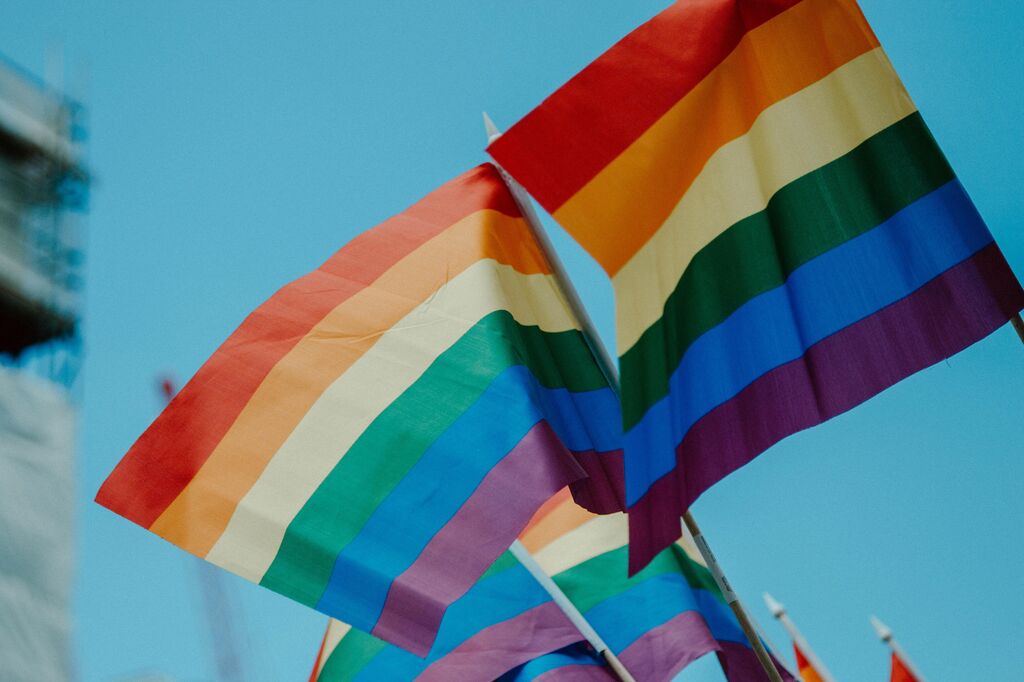Is the conversion therapy ban dead in the water?

James Mildred

It’s been called one of the most dangerous policy proposals ever announced by any UK government. Loved by some, feared by others. First promised in 2018, but as yet, undelivered.
I’m talking, of course, about the proposed legislation which would ban so called conversion therapy. According to the NHS, conversion therapy is trying to change someone’s sexual orientation or gender identity. All forms of it are ‘unethical and potentially harmful’. In the Queen’s Speech in 2021, the UK Government said it would introduce legislation to ban such practices.
Since then, we’ve had a consultation and constant delays as the government tries to figure out how you can introduce a broad enough ban to satisfy Stonewall, without breaching other human rights, like religious freedom. And, so far, that tension has proved unsolvable.
This week, there’s been two significant developments, one in Scotland and one at Westminster. According to the Telegraph, the Scottish Government has been forced to delay its planned conversion therapy legislation. The SNP Government had planned to introduce a Bill to the Scottish Parliament by the end of 2023. Instead, its been had to water this down to a consultation being held by the end of the calendar year.
At Westminster, the Leader of the House, Penny Mourdant, dodged questions about whether the UK Government still intends to introduce legislation before the King’s Speech (expected after the party conference recess). Government sources told the Telegraph that the legislation was either ‘dead in the water’ or ‘stuck in a loop’.
So, is the conversion therapy ban really dead in the water?
To answer this question, let me start by sounding a note of caution. Two notes, in fact. Firstly, we’ve been here before. Last year the government said it would drop plans to legislate for a conversion therapy ban. Following a wave of fury from MPs and campaigners and, true to form, the government u-turned completely.
The point is, just because there are media reports suggesting the demise of the propose legislation, does not mean it is true.
And the other note I’d say is that for the current government, everything is fast becoming about the upcoming General Election. What parliamentary time remains, the prime minister and the cabinet will want to use for vote friendly policies. And as new polling out this week suggests, a mere 4% of UK voters think banning conversion therapy should be a policy priority for the government.
Despite this, it’s obviously entirely possible once Labour get into Downing Street that the whole idea is revived. So this is really potentially just a ‘stay of execution’ before battle lines are redrawn.
Why oppose a conversion therapy ban?
Now at this point, you might be thinking: hold on a minute, as Christians are we really going to oppose a conversion therapy ban? Are we really going to make it all about ourselves and our freedom to preach the gospel? Why can’t we just accept this is happening and go and fight other battles? Wisdom, we might think, suggests we keep quiet on this one and focus our energies elsewhere.
It's really important to stress that as Christians, we do support the removal of potentially harmful psychological therapies and medical treatments, when there is sound scientific evidence for doing so. But crucially, such practices are largely, perhaps entirely, already covered by existing laws.
So why the push for new legislation? Ultimately, it’s being driven by activists who have a particular agenda in mind, namely, to outlaw any view that is not wholehearted support and celebration of a wide variety of gender identities and sexual ones too.
If you look carefully at the rhetoric of those who want the broadest possible conversion therapy ban, what they want is frightening to anyone who values freedom of expression, conscience and thought. Campaigner Jayne Ozanne, who supports the broadest possible ban, told the press last week that ‘gentle, non-coercive prayer’ should be covered by any new law and ‘private prayer’ and ‘causal conversations’ must be included in the ban if its to be effective.
Also, consider the following quotes:
“This is not a matter of freedom of speech…this harmful practice, is unfortunately promoted and practiced primarily be religious leaders…the ban must ensure that no loopholes are created that allow those who practice conversion therapy to offer help in changing one’s behavior.” The Ozanne Foundation “I want to see people go to prison if they try to convince a gay person that what they’re doing is wrong.” Jacob Young MP “In extreme cases it can involve rape and exorcism, but it often takes more subtle forms, including prayer and spiritual guidance.” Paul Brand ITV
Let’s be clear: there are definitely forms of conversion therapy which are utterly abhorrent; rapes, exorcisms and electric shocks. Not only are such behaviours abusive, we know God is firmly opposed to them as well and we stand completely against them. But you can see the idea is you need to also include within the ban legitimate, spiritual disciplines and actions which are just normal parts of Christian life.
Taken at face value, what these quotes evidence is that the most ardent supporters of a broad ban on conversion therapy absolutely want the ban to be so broad, private prayer and public bible teaching is included within it.
Consider the following scenario. Imagine someone starts attending your church. They reach out to a pastor, leader or member and ask for prayer because of unwanted sexual desires. There’s no coercion and they want to explore their feelings in the context of historic, Christian teaching. Their desire is to order their attractions in line with their identity in Christ. If the Government go along with a broad ban, offering this kind of pastoral care and help could be subject to a police investigation.
Or what about this scenario. A married woman is experiencing attraction to another woman. She wants to stay faithful to her marriage vows and her husband. She believes in God’s word that marriage is between one man and one woman. Any pastoral counselling, under a broad ban, any pastoral counsel to help her resist same-sex attraction would be labelled ‘conversion therapy’, considered harmful and possibly subject to legal action.
But, you might argue, the two scenarios above are hypothetical. There’s a whiff of ‘project fear’ about them. What we really need is clear evidence of an implemented conversion therapy ban actually having a negative impact on society.
Victoria shows us what could happen
Well, we only need to look at what’s been happening in the Australian state of Victoria. Earlier this month, updated guidance from the Australian State government there claimed that prayers that ‘talk about a person’s need to repent’ are likely to be illegal under its broad conversion therapy ban. Calling someone with same-sex attraction to repent is ‘likely to cause harm’, say the authors of the guidance and the Victorian Equal Opportunity and Human Rights Commission.
The guidance even presents you with a table setting out what kind of prayer is acceptable. Compliant prayers will affirm that someone can belong to the Christian faith, ‘as they are’. One Melbourne pastor said that when he attended an official information session on the conversion therapy law, he was told that ‘no person’s sexuality or gender identity is broken or sinful’.
While the Commission in the state of Victoria has insisted Christians can still express the Bible’s general teaching on sexual ethics, it’s also clearly having a direct, chilling impact on religious freedom.
What’s ironic, is this is from a government in Victoria that values diversity. Just not, it seems, when it comes to accommodating a diverse range of views when it comes to identity and sexual ethics! To see how lawyers of the state are attempting to act as judges over what’s right and wrong when it comes to sexual identity is an Orwellian nightmare.
Thankfully, there’s some, albeit limited, evidence that some countries are pausing before going down the conversion therapy route. Presently, eight European countries have some kind of conversion therapy ban in place. They are: Malta, Cyprus, Albania, Germany, Greece, Spain, France and Iceland.
But in earlier this year, Sweden appears to be wavering over introducing a ban. In 2022, the Swedish Agency for Youth and Civil Society Affairs claimed some LGBT people were being pressured into changing their sexuality. The government ordered an investigation on whether a conversion ban was needed.
A senior judge has published a report into a possible conversion therapy ban in Sweden. She advised the government not to legislate for a ban.
The two key paragraphs are as follows:
It is reprehensible to try to change or suppress another person’s sexual orientation, gender identity or gender expression. Criminalisation would send a message from society regarding this and could have a normative effect. However, a new penalty provision should not be introduced for the sole reason that the legislator wishes to send a message. It should also be foreseeable that the provision will be applied to some reasonable extent in practice and help counteract the undesirable behaviour. Further, for a provision to have a normative effect, it is required that the provision can be drafted in a sufficiently clear manner. “The overall conclusion is that further criminalisation would not be an effective means of countering conversion efforts. A separate regulation criminalising them should therefore not be introduced.
What makes this noteworthy is Sweden has a reputation for being very pro-LGBT. For example, it legalised homosexuality, allowed people to change gender, legalised civil partnerships and same sex marriage considerably quicker than the UK. But even progressive Sweden is taking its time and may not even introduce a ban.
So where does that leave us?
Whether there is a ban in this parliament or not, our starting point must be the same. The New Testament forbids Christians to cause harm to others. We are to love our neighbour as we love ourselves. But it is not harmful to share the good news of the gospel of the Lord Jesus and God’s better story for identity and sexuality. The worse thing we could do is go silent on these matters, even before any such ban might be introduced!
Secondly, we should engage in debates on this but do so willing to listen to the other side. Moreover, we should persuade people of the transforming power of conversion. As the Apostle Paul says in 2 Corinthians 5:17, if anyone is in Christ they are a new creation! The old has gone, the new is here! We must remember the power of regeneration. A new person is reborn in the image of Jesus! The Holy Spirit comes to dwell in their heart and they belong to the church, finding support and help for the Christian life. For some, that can mean moving over from a gay lifestyle, to heterosexual marriage. For others, it might mean singles and celibacy. The goal for all is not heterosexuality, but holiness with God’s help.
If legislation appears, we should contact our MP and calmly and clearly express our concerns and use evidence from places like Victoria in Australia to show what might happen if the government gets this wrong.
We can pray that no ban is introduced and if it is, then it is limited to activities that are genuinely medically and scientifically harmful. We must pray too for those who experience unwanted same-sex attraction that they will find freedom in Jesus and if their life is one of life long celibacy that they will show the sufficiency of the gospel through their obedience and will find companionship and family through the church.